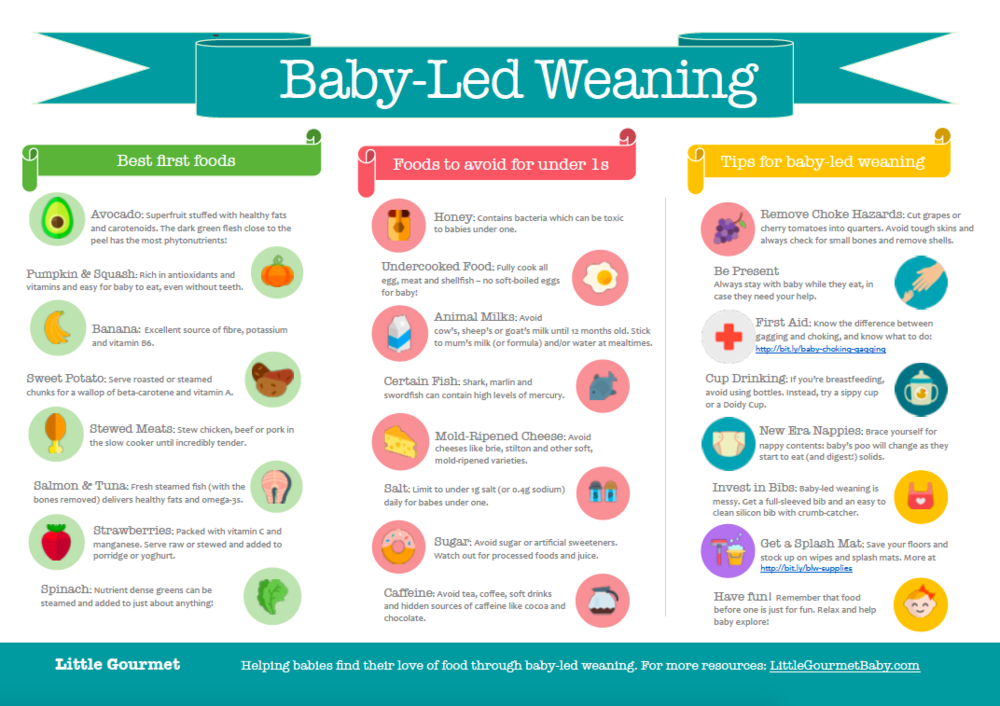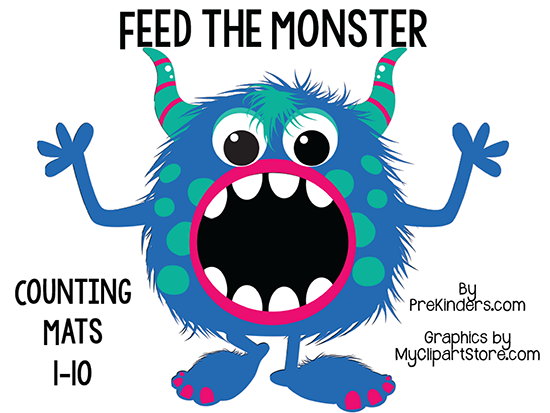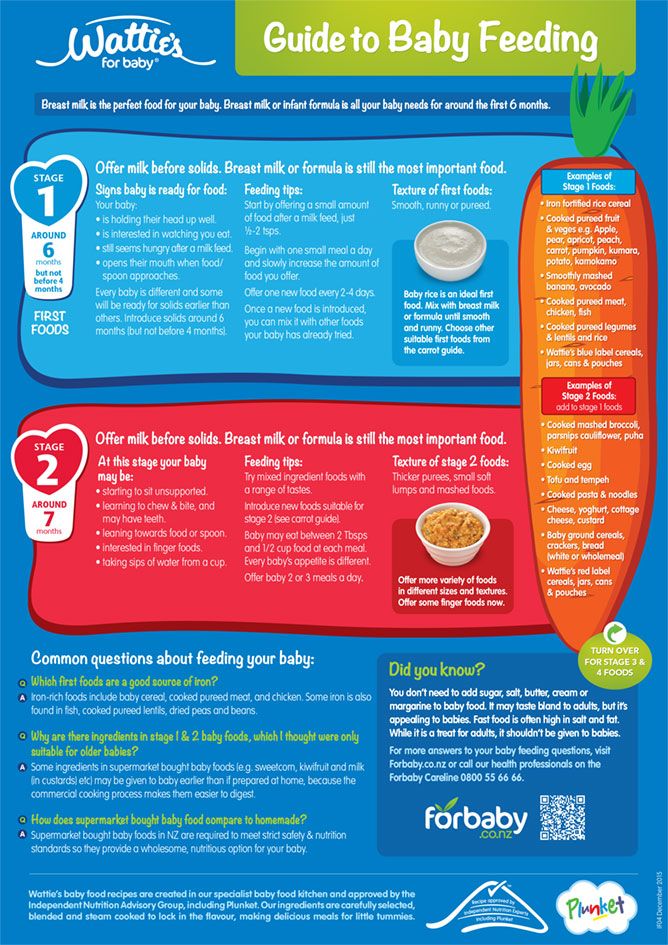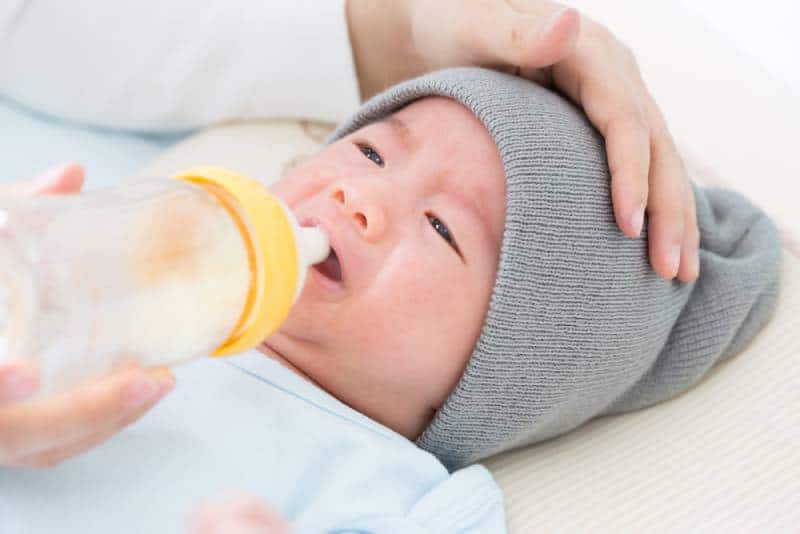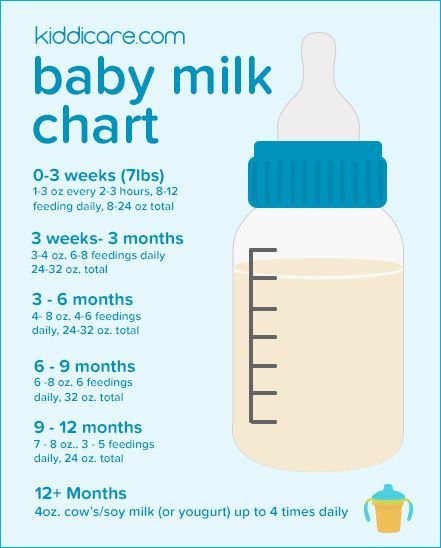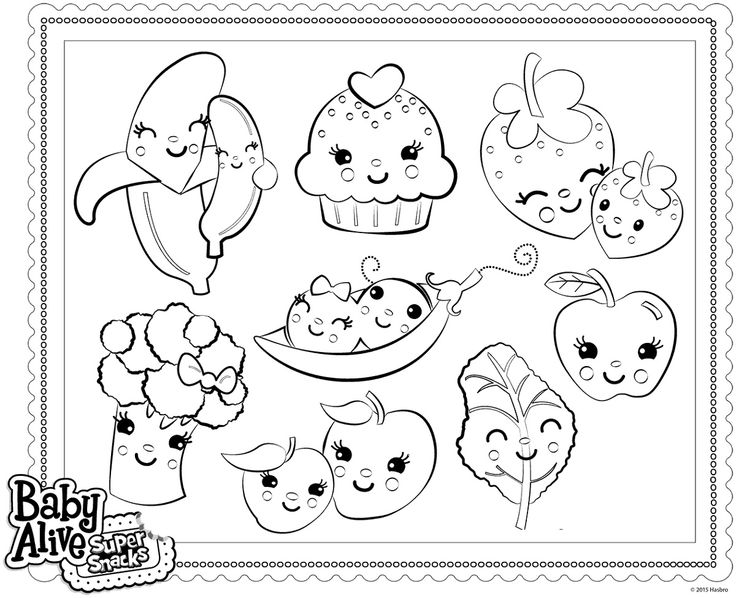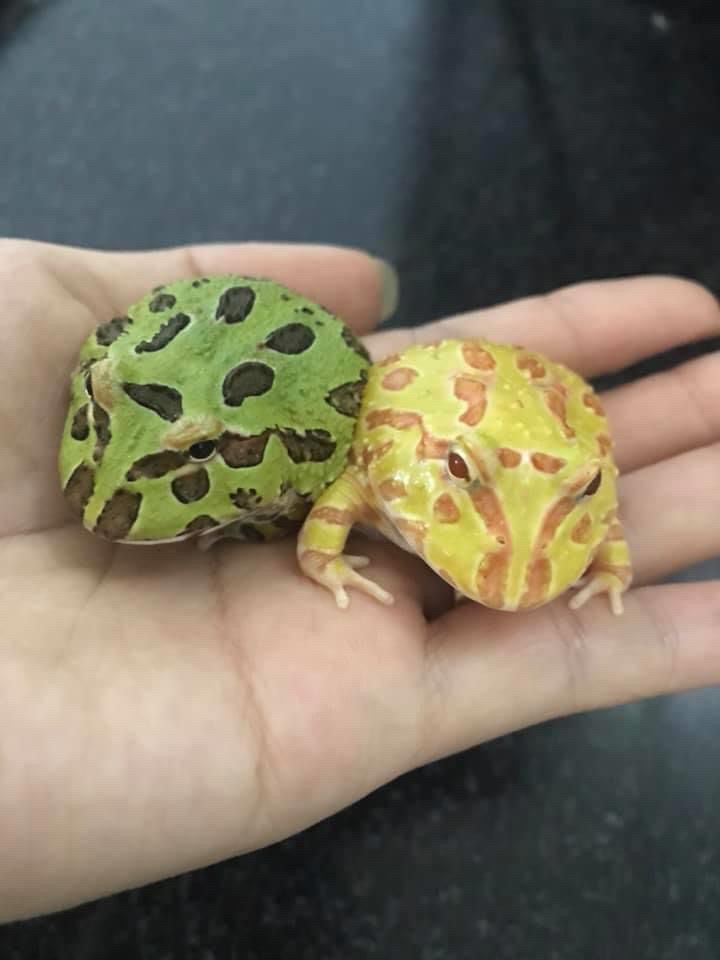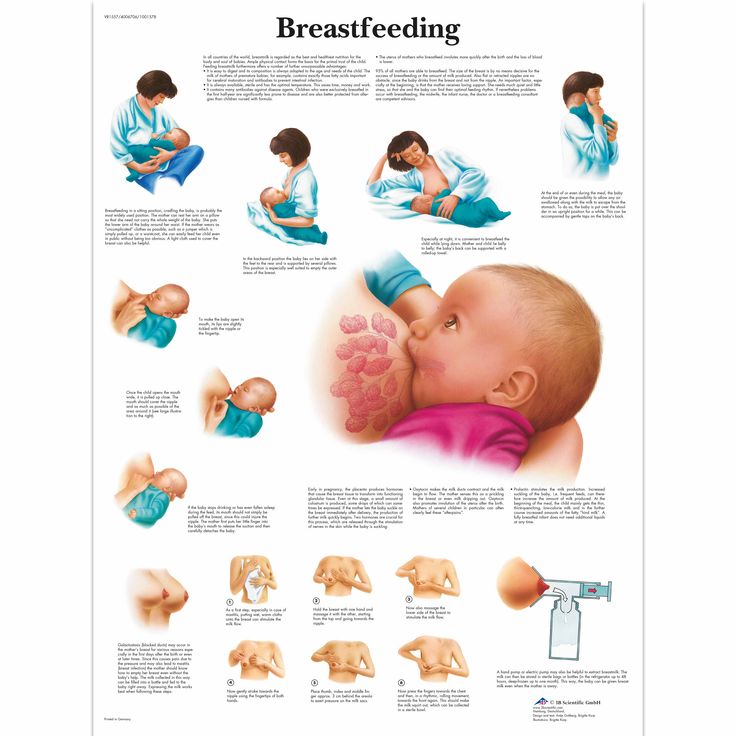Foods to avoid for babies under 12 months
Foods to avoid giving babies and young children
Salt
Babies should not eat much salt, as it's not good for their kidneys.
Do not add salt to your baby's food or cooking water, and do not use stock cubes or gravy, as they're often high in salt.
Remember this when you're cooking for the family if you plan to give the same food to your baby.
Avoid salty foods like:
- bacon
- sausages
- chips with added salt
- crackers
- crisps
- ready meals
- takeaways
Sugar
Your baby does not need sugar.
By avoiding sugary snacks and drinks (including fruit juice and other fruit drinks), you'll help prevent tooth decay.
Saturated fat
Do not give your child too many foods that are high in saturated fat, such as crisps, biscuits and cakes.
Checking the nutrition labels can help you choose foods that are lower in saturated fat.
See more on food labels.
Honey
Occasionally, honey contains bacteria that can produce toxins in a baby's intestines, leading to infant botulism, which is a very serious illness.
Do not give your child honey until they're over 1 year old. Honey is a sugar, so avoiding it will also help prevent tooth decay.
Whole nuts and peanuts
Whole nuts and peanuts should not be given to children under 5 years old, as they can choke on them.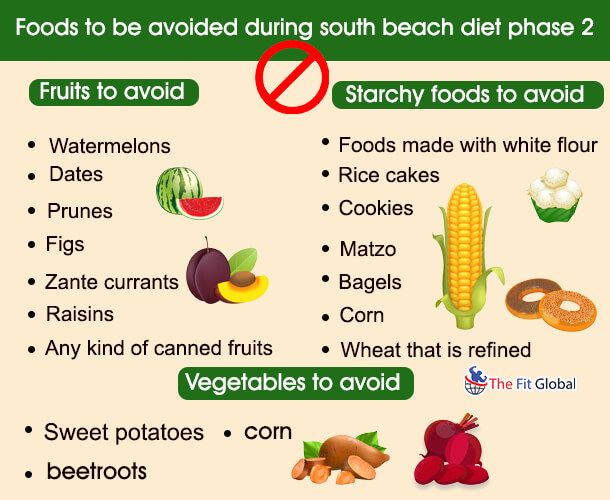
You can give your baby nuts and peanuts from around 6 months old, as long as they're crushed, ground or a smooth nut or peanut butter.
If there's a history of food allergies or other allergies in your family, talk to your GP or health visitor before introducing nuts and peanuts.
See more on food allergies in babies and young children.
Some cheeses
Cheese can form part of a healthy, balanced diet for babies and young children, and provides calcium, protein and vitamins.
Babies can eat pasteurised full-fat cheese from 6 months old. This includes hard cheeses, such as mild cheddar cheese, cottage cheese and cream cheese.
Babies and young children should not eat mould-ripened soft cheeses, such as brie or camembert, or ripened goats' milk cheese and soft blue-veined cheese, such as roquefort. There's a higher risk that these cheeses might carry a bacteria called listeria.
There's a higher risk that these cheeses might carry a bacteria called listeria.
Many cheeses are made from unpasteurised milk. It's better to avoid these because of the risk of listeria.
You can check labels on cheeses to make sure they're made from pasteurised milk.
But these cheeses can be used as part of a cooked recipe as listeria is killed by cooking. Baked brie, for example, is a safer option.
Raw and lightly cooked eggs
Babies can have eggs from around 6 months.
If the eggs are hens' eggs and they have a red lion stamped on them, or you see a red lion with the words "British Lion Quality" on the box, it's fine for your baby to have them raw (for example, in homemade mayonnaise) or lightly cooked.
Hens' eggs that do not have the red lion mark should be cooked until both the white and yolk are solid.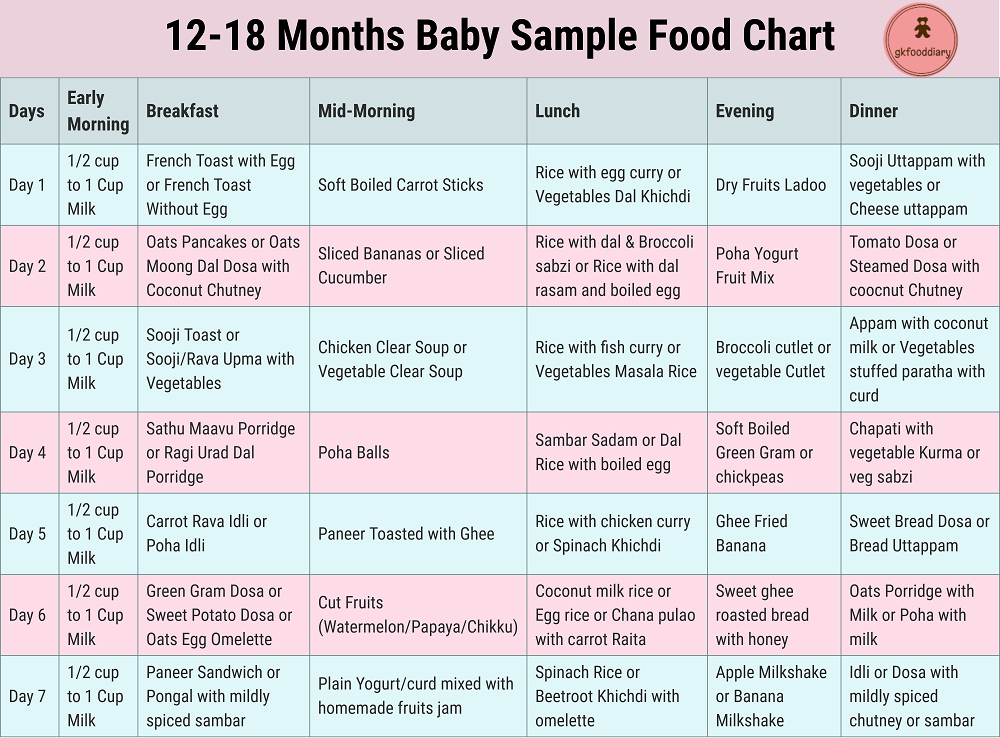 So should duck, goose or quail eggs.
So should duck, goose or quail eggs.
Avoid raw eggs, including uncooked cake mixture, homemade ice creams, homemade mayonnaise, or desserts that contain uncooked egg that you cannot confirm are red lion stamped.
Rice drinks
Children under 5 years old should not have rice drinks as a substitute for breast milk or infant formula (or cows' milk after 1 year old) as they may contain too much arsenic.
Arsenic is found naturally in the environment and can find its way into our food and water.
Rice tends to take up more arsenic than other grains, but this does not mean that you or your baby cannot eat rice.
In the UK, there are maximum levels of inorganic arsenic allowed in rice and rice products, and even stricter levels are set for foods intended for young children.
Do not worry if your child has already had rice drinks.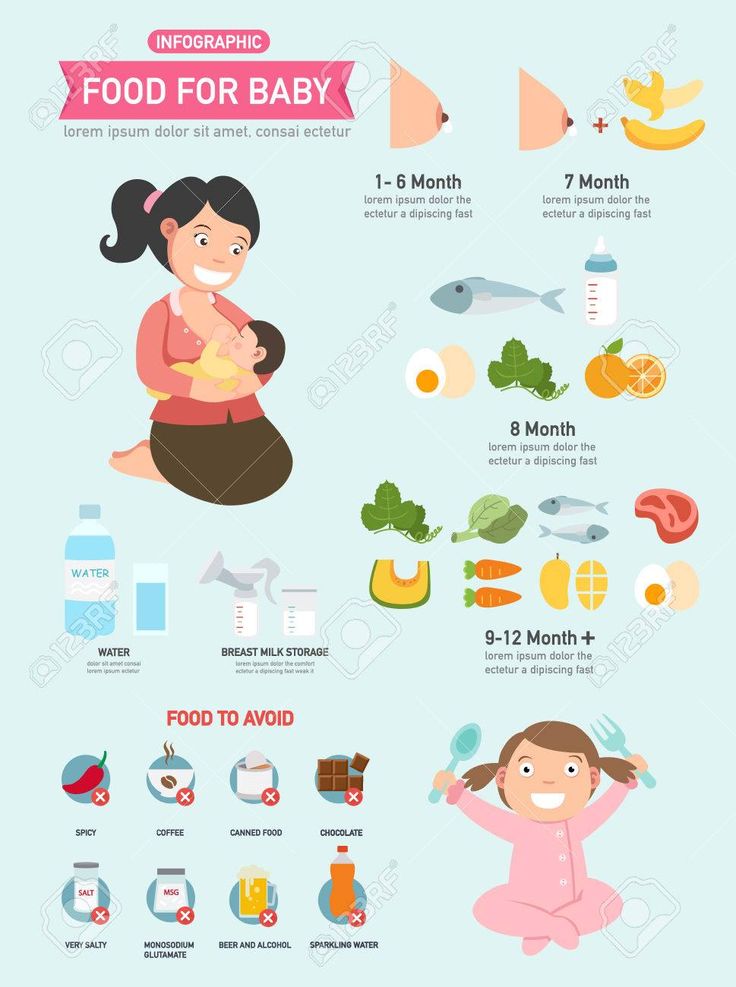 There's no immediate risk to them, but it's best to switch to a different kind of milk.
There's no immediate risk to them, but it's best to switch to a different kind of milk.
Raw jelly cubes
Raw jelly cubes can be a choking hazard for babies and young children.
If you're making jelly from raw jelly cubes, make sure you always follow the manufacturers' instructions.
Raw shellfish
Raw or lightly cooked shellfish, such as mussels, clams and oysters, can increase the risk of food poisoning, so it's best not to give it to babies.
Shark, swordfish and marlin
Do not give your baby shark, swordfish or marlin. The amount of mercury in these fish can affect the development of a baby's nervous system.
Further information
For more information and advice about babies and food, see:
- food allergies in babies and young children
- your baby's first solid foods
- baby and toddler meal ideas
15 Foods You Should Avoid For Babies Younger Than A Year
These foods may lead to infections, allergies, or choking hazards.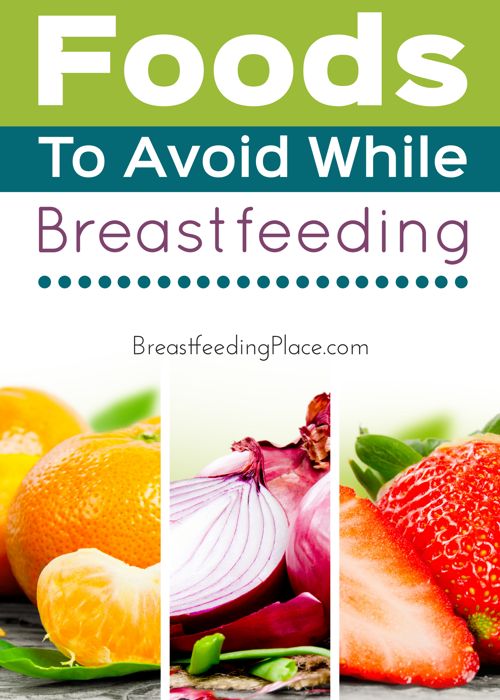
Research-backed
MomJunction believes in providing reliable, research-backed information to you. As per our strong editorial policy requirements, we base our health articles on references (citations) taken from authority sites, international journals, and research studies. However, if you find any incongruencies, feel free to write to us.
Image: Shutterstock
Complementary feeding is an essential milestone in a baby’s life. A well-growing, healthy baby can eat several solid foods from different food groups. However, this doesn’t mean they can eat everything. Knowing the foods to avoid for babies helps to avoid health hazards.
The transition from breastfeeding to weaning indicates that the baby is growing well. Babies under 12 months are still developing vital oral skills and have an immature digestive system. Therefore, while selecting age-appropriate weaning foods, parents need to stay mindful of the foods to avoid for babies younger than a year.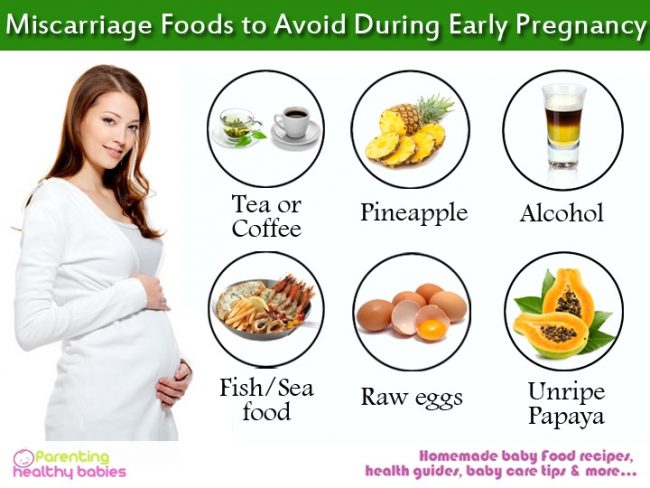
So read through this post if you are first-time parents looking for a list of foods to avoid for babies. It also gives you an overview of foods you should avoid feeding your baby until they reach 12 months of age.
Foods To Avoid For Babies
1. Refined sugar
Image: Shutterstock
The Centers for Disease Control and Prevention (CDC) advise against feeding added sugar to babies under 24 months (1). According to experts, babies shouldn’t eat sugar alone or as a part of food because sugar adds additional calories to the diet and can cause tooth decay over time. Many mothers tend to add refined sugar to milk. Also, exposing babies to sugar in infancy and early childhood may cause a baby to develop a preference for sweet foods, and such babies are at a higher risk of developing type 2 diabetes and obesity later in life.
An individual with a sweet tooth is highly likely to consume sugar in excess later in life, leading to chronic health issues, such as type-2 diabetes. Therefore, you shouldn’t feed sugary drinks, such as fruit juices, and sugary snacks, such as sweet biscuits, to babies (2).
Therefore, you shouldn’t feed sugary drinks, such as fruit juices, and sugary snacks, such as sweet biscuits, to babies (2).
Related: Top 10 Food Ideas For Your 4 Months Baby
2. Honey
Honey is a natural sweetener and has trace minerals and antioxidants. It is why honey is considered a healthy alternative to sugar. However, babies under 12 months can’t consume honey due to infant botulism risk.
Besides, honey contains considerable amounts of sugar, which confers similar health risks as refined sugar upon overconsumption. Thus, parents shouldn’t feed honey to babies under 12 months (2)(3).
3. Salt
Babies between 7-12 months require 0.37grams of sodium per day (2). According to experts, most healthy, full-term infants can meet this requirement from breast milk or formula. Therefore, you shouldn’t add salt to your baby’s food (3). It is vital because if a baby consumes added salt, it exposes them to excess sodium, which exerts undue stress on their immature kidneys.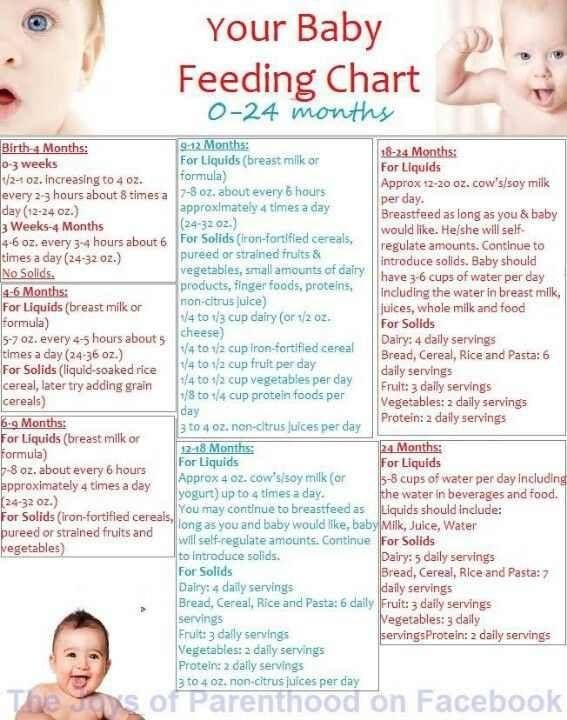
Parents should abstain from feeding readymade, highly processed, high-sodium foods, such as chips, crisps, fries, bacon, and sausages. Also, they shouldn’t use stock cubes and gravy to prepare weaning foods for babies since they also contain high sodium quantities. High quantities of sodium or salt can cause hyperosmolarity in the baby, and the baby’s kidneys cannot handle this load.
Related: 6 Helpful Tips For Storing Formula Milk For Your Baby
4. Cow’s milk
These proteins can irritate the baby’s digestive system lining, causing occult bleeding and increasing the risk of iron deficiency anemia (IDA) over time. Whole cow milk can provide several nutrients, but it is not suitable for babies under 12 months (2). The recommendation is based on the fact that cow milk lacks essential nutrients, such as vitamin E, iron, and zinc, which a baby needs for healthy growth and development (4). The baby is also likely to develop allergic reactions.
Besides, it has heavy proteins and minerals that put undue stress on a baby’s still-developing kidneys (5).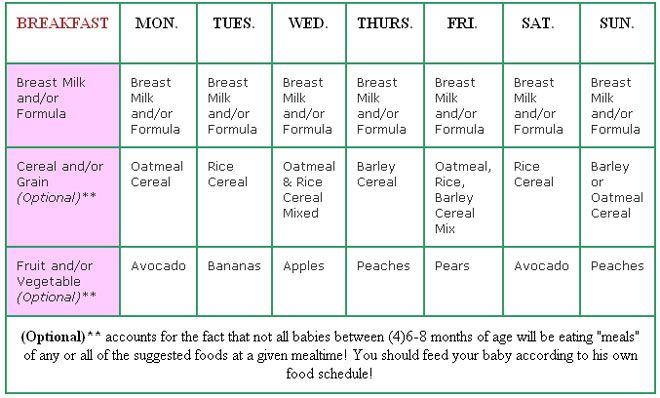 Additionally, these proteins can irritate the baby’s digestive system lining, causing occult bleeding, increasing the risk of iron deficiency anemia (IDA) over time.
Additionally, these proteins can irritate the baby’s digestive system lining, causing occult bleeding, increasing the risk of iron deficiency anemia (IDA) over time.
5. Cheese
Image: Shutterstock
Registered dietitian and client success manager at Omada Health Julie Harris says, “Many types of cheese can be part of a balanced diet for babies, as it is a good source of calcium, protein, and vitamins. Yet, babies should not be fed mold-ripened soft cheeses, like brie, goat cheese, or blue cheese. These types of cheeses have a higher risk of carrying listeria (bacteria). Any cheeses made from unpasteurized milk also carry the extra risk of listeria, and babies (and young kids) should avoid them.”
Listeria is a harmful bacterium that can cause food poisoning. Therefore, check the nutrition label and ingredient list carefully while buying cheese for your baby.
“Also it’s important to watch for milk allergy when serving cheese made from dairy.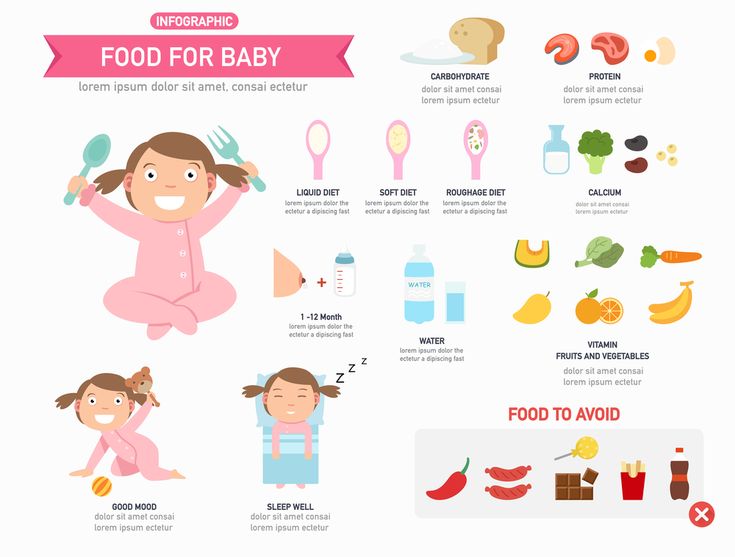 Since cow’s milk allergy is one of the most common allergies in babies, watch for symptoms when serving cheese during the early months,” notes Harris.
Since cow’s milk allergy is one of the most common allergies in babies, watch for symptoms when serving cheese during the early months,” notes Harris.
Related: Cheese For Babies: When To Introduce, Benefits And Recipes
6. Unpasteurized foods
Consuming unpasteurized raw milk, yogurt, cider vinegar, and juices can expose a baby to E. coli bacteria. E. coli can cause severe illnesses, such as septicemia and meningitis in babies. The immune system of the baby is unable to handle these bacteria. Therefore, experts advise parents to avoid feeding unpasteurized foods to babies (1).
7. Fruit juices
The American Academy of Pediatrics (AAP) recommends against feeding fruit juices to infants. According to them, fruit juices offer no nutritional value to babies younger than one year. An extra load of sugar is added to the baby’s diet without any nutritional benefit. Besides, fruit juice intake is associated with tooth decay. Toddlers between one and three years can have no more than four ounces of 100 percent fresh or reconstituted fruit juice per day (6).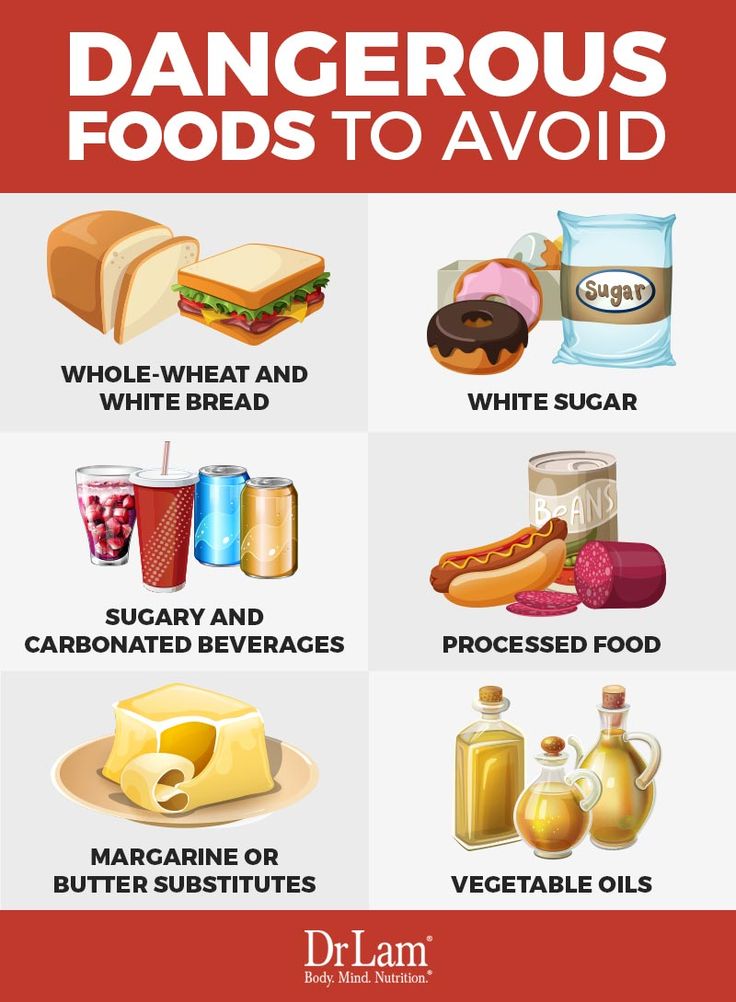
8. Smoked and cured meat
Image: Shutterstock
According to registered dietician nutritionist and founder of the Sprint Kitchen, Morgyn Clair, “parents want to make sure they avoid any meats that aren’t fully cooked through to at least a 165-degree internal temperature. Smoked meats sometimes are not cooked to this high degree, which ensures harmful bacteria is killed.”
Besides, smoked or cured meats, such as bacon, bologna, and salami, contain high fat, sodium, and nitrates (2). Hence feeding these foods to babies isn’t recommended. The baby is unable to digest these foods with high fat and sodium content. Hence feeding these foods to babies isn’t recommended.
9. High-mercury fish
Fish is a nutrient-rich food with vital nutrients, such as iodine, zinc, and high-quality lean proteins. Additionally, it has essential omega-3 fatty acids — DHA (docosahexaenoic acid) and EPA (eicosapentaenoic acid) that aid in an infant’s brain development.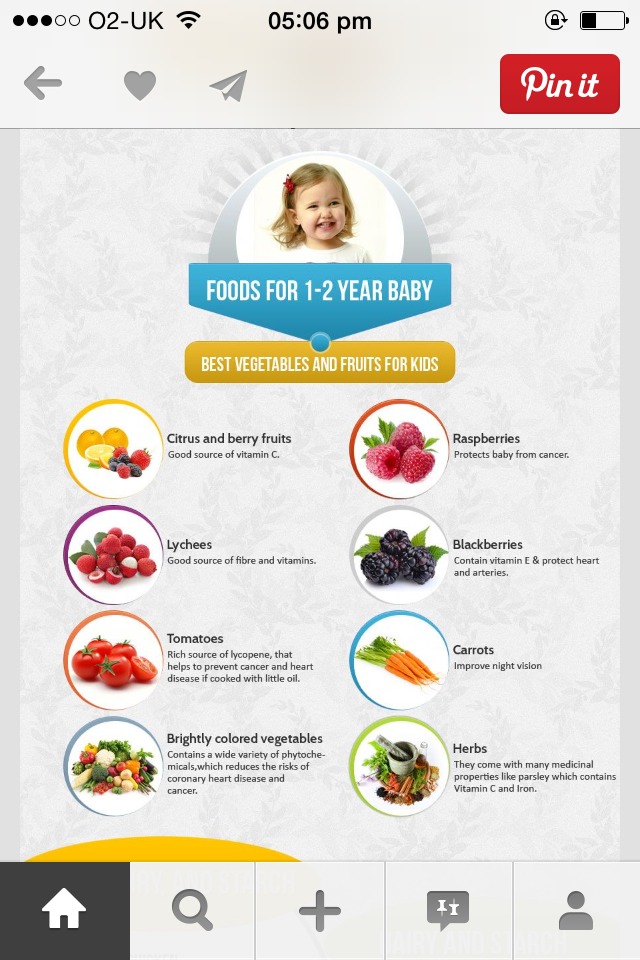 Therefore, you should feed low-mercury, fatty fishes, such as tuna light and salmon, to your baby. However, you must avoid fishes, such as bigeye tuna, shark, tilefish, and king mackerel, since they are high in mercury (2).
Therefore, you should feed low-mercury, fatty fishes, such as tuna light and salmon, to your baby. However, you must avoid fishes, such as bigeye tuna, shark, tilefish, and king mackerel, since they are high in mercury (2).
Mercury is a heavy metal that could impair an infant’s neurological development, leading to growth and development issues, such as impaired speech and motor skills development. Therefore, it is vital to avoid high-mercury fish for babies (7).
Related: Fish Oil For Babies: Safety, Health Benefits And Side Effects
10. Raw and partially cooked eggs
Eggs are a nutrient-rich source of high-quality protein. Babies can consume well-cooked eggs as a part of a well-balanced weaning diet from six months of age. However, you shouldn’t feed raw and partially cooked eggs since they may pose a risk of salmonella and other bacterial infections. In addition, there is a risk of developing an allergic reaction.
Bacterial infections can cause food poisoning in babies and adversely harm their immature digestive systems. Some foods containing raw or partially cooked eggs are homemade ice cream, mayonnaise, eggnog, and certain salad dressings (2)(8).
Some foods containing raw or partially cooked eggs are homemade ice cream, mayonnaise, eggnog, and certain salad dressings (2)(8).
11. Raw sprouts
Image: iStock
Sprouts, such as alfalfa and mung bean sprouts, are healthy foods that can offer protein, fiber, and several micronutrients. However, feeding raw sprouts to babies isn’t advisable (8)(9). It is because raw sprouts may contain harmful bacteria, such as salmonella and E.coli. These bacteria can cause food poisoning affecting the baby’s health severely. Thus, feed only well-cooked sprouts to babies. Generally, raw foods are avoided in babies due to the risk of infections and difficulty in digestion.
12. Whole nuts and peanuts
Whole nuts, such as almonds, cashew, pistachio, and peanuts, are a potential choking hazard for babies under four years of age (2). So, you must avoid feeding them to babies. However, since these foods are healthy, you can finely chop or powder them before adding them to different weaning foods, such as muffins and porridges.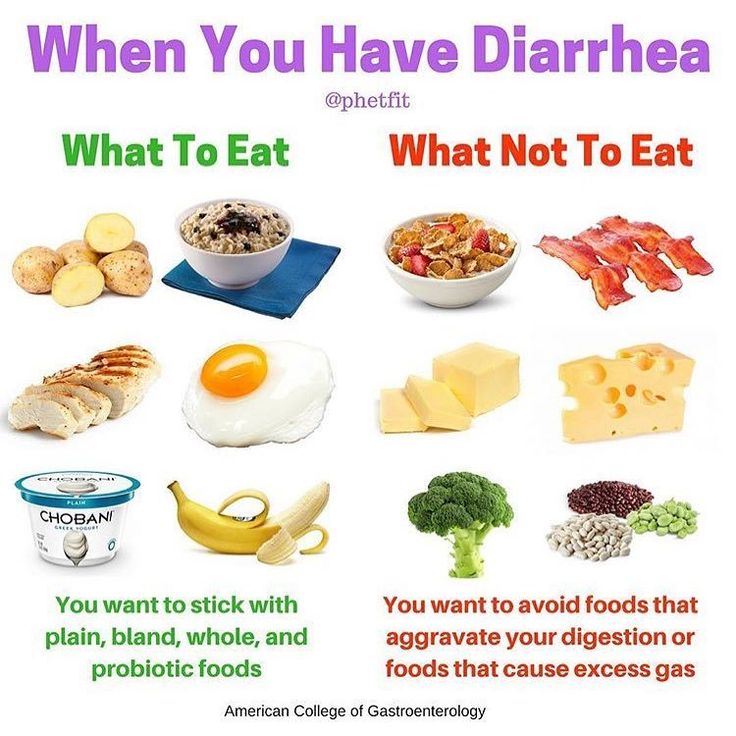
13. Raw vegetables and fruits
Baby carrot, celery, corn, and green peas are fruits and veggies that are a potential choking hazard for babies (2). Therefore, babies shouldn’t consume them unless they are cooked thoroughly so that they become soft. Berries are fruits that babies can eat raw but only when quartered.
14. Sticky foods
Image: iStock
Raw jelly cubes, chewy fruits, snacks, marshmallows, and a dollop of peanut butter are some sticky foods that babies should avoid. Since these foods stick to the mouth, swallowing them gets difficult for babies, raising the risk of choking (2). Therefore, experts recommend avoiding these foods for babies until they are four years old.
15. Rice drinks
Rice is a common grain used as a complementary food for babies. However, when it comes to rice drinks, such as rice milk, experts recommend children under five years of age shouldn’t have rice milk as a substitute for breast milk or infant formula (10). It is because rice drinks may have high amounts of inorganic arsenic, which can affect the cognitive development of babies over time (2).
It is because rice drinks may have high amounts of inorganic arsenic, which can affect the cognitive development of babies over time (2).
In addition to these, babies should avoid highly processed foods, such as cakes, donuts, and fries, as they are high in saturated fat, sodium, and sugar which are harmful to their health. Also, you need to avoid foods that have triggered an allergic reaction in your baby. Food triggering allergy in parents must also be excluded in child’s diet
Babies older than six months should be exposed to foods from different food groups. However, since the digestive systems of babies under one year are still developing, it is essential to wait until their first birthday before offering them certain foods. You may consult a pediatrician or a certified pediatric nutritionist to get a list of safe foods and foods to avoid for babies. Babies younger than one year may also be more prone to developing allergies. Hence, parents should watch what they are fed.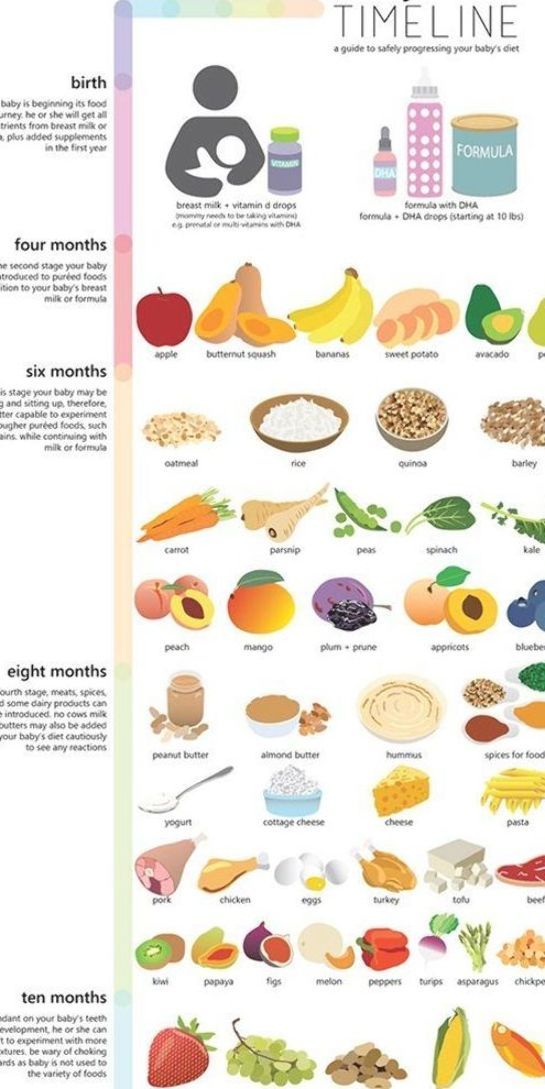
Key Pointers
- Do not give refined sugar and honey to newborns under 12 months.
- Whole cow milk is also not suitable as it lacks nutrients essential for their growth and development.
- Fruit juices add no nutritional benefit for newborns less than one year.
- Raw vegetables and fruits and sticky food, such as jelly cubes, are likely to cause choking in babies.
References:
MomJunction's articles are written after analyzing the research works of expert authors and institutions. Our references consist of resources established by authorities in their respective fields. You can learn more about the authenticity of the information we present in our editorial policy.
1. Foods and Drinks to Limit; CDC
2. Infant Nutrition and Feeding; USDA
3. Foods to avoid giving babies and young children; NHS
4. Alexander KC Leung and Reginald S Sauve; Whole cow’s milk in infancy; NCBI
5. Why Formula Instead of Cow’s Milk?; AAP
Why Formula Instead of Cow’s Milk?; AAP
6. AAP Recommends No Fruit Juice for Children Under 1 Year; AAP
7. Mercury and health; WHO
8. Food safety information for children ages 5 and under; Government Of Canada
9. Food Safety for Babies’ First Year; British Columbia
10. Tips to Reduce Arsenic in Your Baby’s Diet; AAP
The following two tabs change content below.
- Reviewer
- Author
Swati Patwal is a clinical nutritionist, a Certified Diabetes Educator (CDE) and a toddler mom with over eight years of experience in diverse fields of nutrition. She started her career as a CSR project coordinator for a healthy eating and active lifestyle project catering to school children. Then she worked as a nutrition faculty and clinical nutrition coach in different...
View Profile ›
Dr. Mubina Agboatwalla is a well-known pediatrician, practicing paediatrics since the last 20 years in Karachi Pakistan.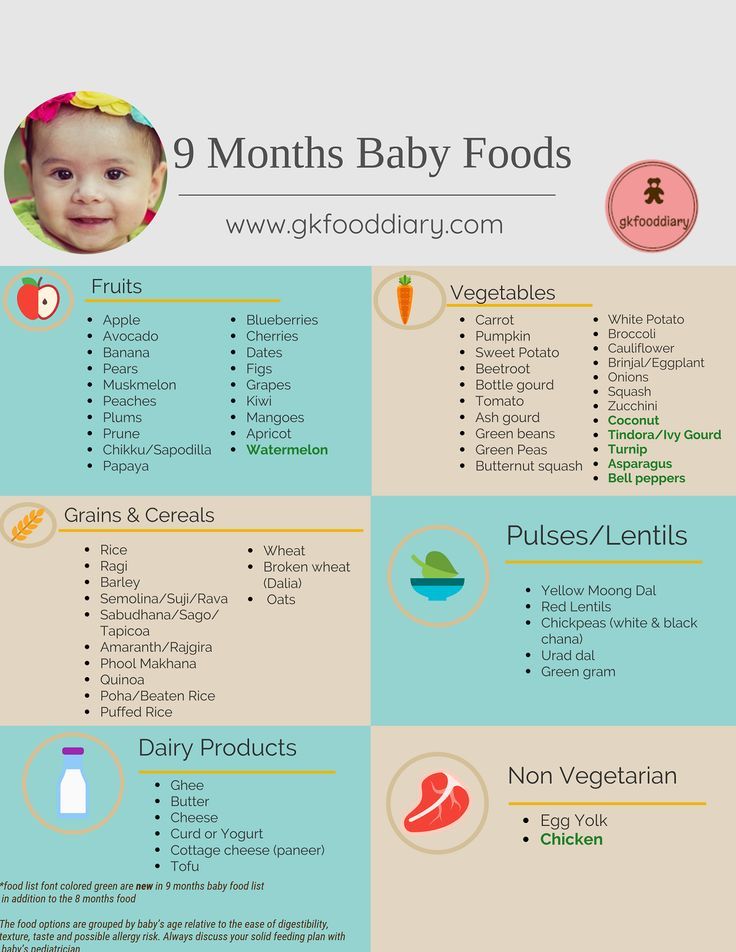 She is the head of the department of Pediatrics in Karachi Liaquat Hospital, as well as her private practice in three specialist clinics in Pediatrics. She is also a Public Health Specialist specializing in preventive health including nutrition, breastfeeding and infectious diseases especially...
She is the head of the department of Pediatrics in Karachi Liaquat Hospital, as well as her private practice in three specialist clinics in Pediatrics. She is also a Public Health Specialist specializing in preventive health including nutrition, breastfeeding and infectious diseases especially...
View Profile ›
what not to eat for children under 1 year old and why
Reasons for the ban
In the first year of life, many systems of the child's body are still developing, including the immune and digestive 1 . The ban on the use of certain products before the age of one is associated with the vulnerability of these two systems. The baby's diet should not include allergen foods and dishes that cause problems with the gastrointestinal tract, kidneys and liver.
- provoke an allergic reaction,
- are poorly digested or not absorbed by the body at all,
- cause excessive stress on various organs and systems, for example, causing gas, bloating and other problems.
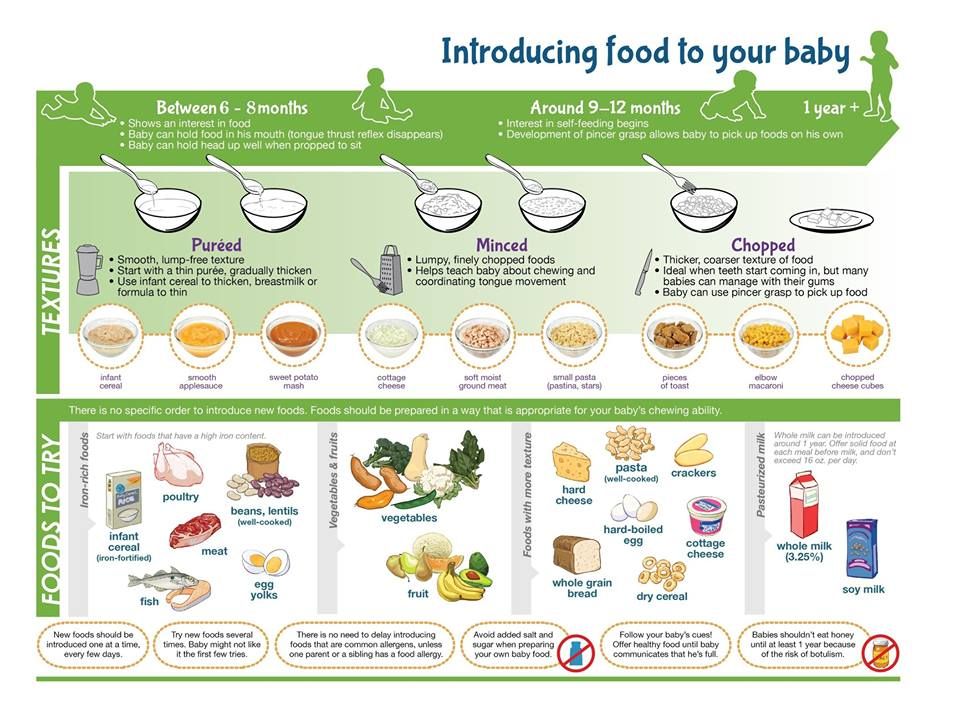
It will be useful for mothers to learn about foods forbidden to children under one year old.
Candies and other sweets
Sweets, cakes, pastries, muffins, waffles, rich pastries and other "sweets" of industrial production can harm the fragile body of the baby. They contain dyes, preservatives and other artificial additives, unhealthy confectionery fats or vegetable oils. “But a growing body needs sugar!” - any mother will reasonably object. Yes, but top sweets for babies up to one year old - baby fruit purees and juices , not sweets or confectionery.
Puree contains a sufficient amount of natural fruit sugars , useful for a growing organism. It is better to choose fruit drinks and compotes for a baby up to a year of industrial production with the marking “for feeding children from so many months”, juices are also special for children from the store marked “no added sugar” 2, 3 . Chocolate for babies up to a year is also banned.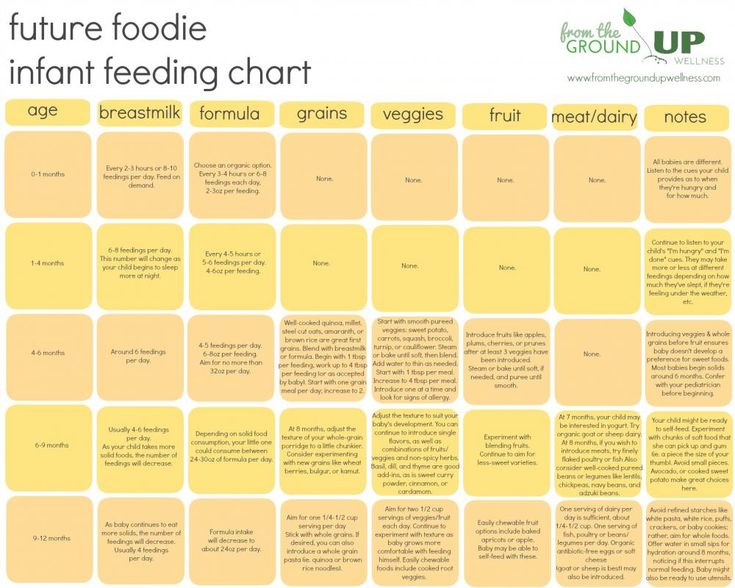 nine0004 Cocoa in its composition belongs to strong allergens , moreover, it can invigorate the baby to overexcitation.
nine0004 Cocoa in its composition belongs to strong allergens , moreover, it can invigorate the baby to overexcitation.
Salt and pickles
Pediatricians recommend that mothers accustom their baby to the original taste of foods when complementary foods are introduced. This is a reliable foundation for proper nutrition and health for many years. Vegetables and cereals are tasty on their own, without flavor enhancers such as sugar and salt 4 . It is better not to add salt to complementary foods at all, but salting them the way they salt adult food is strictly prohibited . The "salt" norm of an adult is about 5 grams per day, a baby from six months to a year can receive no more than 0.3 grams of sodium chloride per day. This dose is contained in complementary foods and breast milk or milk mixtures that are given to the baby. There is no need to salt his food. For the body of a baby, an adult dose is an overabundance of almost 17 times, which loads the kidneys, liver and blood vessels and retains fluid in the body.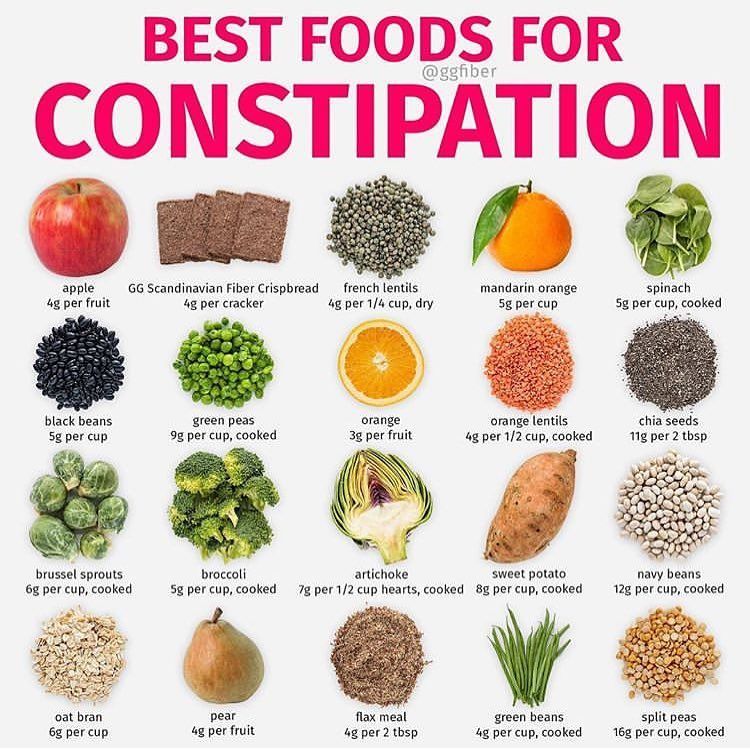 For the same reason Pickles and other very salty foods such as pickles, straws, nuts or fish should not be given to infants. .
For the same reason Pickles and other very salty foods such as pickles, straws, nuts or fish should not be given to infants. .
Seafood
Undoubtedly, seafood is very useful: rich in protein, trace elements and other important compounds. But squids, mussels, shrimps and other inhabitants of the deep sea are strong allergens for the child's organism . In addition, seafood protein is unusual for the gastrointestinal tract of the baby and will be poorly absorbed. Modern pediatricians warn that even fish puree in baby food appears last. His healthy baby starts to give at about 10-12 months 5 .
Allergenic vegetables, fruits and berries
Pediatricians classify as allergenic vegetables, fruits and berries red and orange . Strawberries, wild strawberries, sea buckthorn, raspberries, pomegranates, pineapples, melons, grapes, red apples, persimmons, peaches, tomatoes, red and orange bell peppers, all citrus fruits and even carrots are potential highly allergenic foods for a baby up to a year old 6 .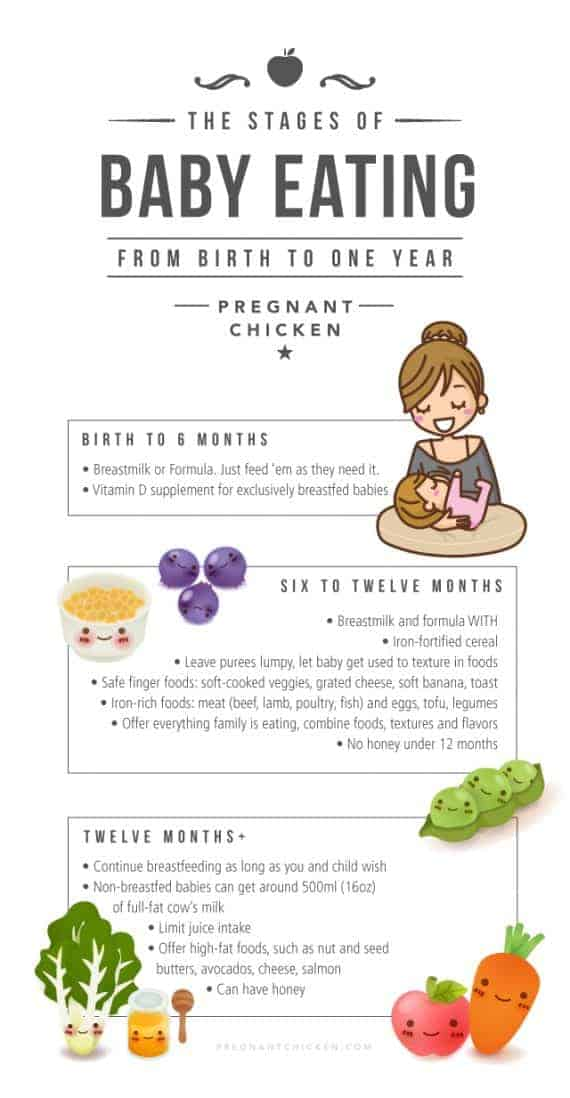 Allergenic also include exotic fruits and vegetables - kiwi, avocado, passion fruit and others. For a healthy child, they are introduced into the diet after a year, after consulting a doctor. nine0005
Allergenic also include exotic fruits and vegetables - kiwi, avocado, passion fruit and others. For a healthy child, they are introduced into the diet after a year, after consulting a doctor. nine0005
Gas generating products
Bloated tummy and gas are a concern for any mother. It is better to exclude foods that provoke them from the baby’s diet: legumes, cabbage, grapes, and even white or rye bread. Dryers, cookies or biscuits are suitable for a child up to a year - special children's ones.
Mushrooms
Chemically, mushrooms are similar to both vegetables and animal products. They contain B vitamins, vitamin D, biotin and many other useful substances. Mushrooms are rich in protein - from 2 to 9%. In white mushrooms, protein, for example, is 3.7%, and in champignons - 4.3%. However, mushroom protein is poorly absorbed even by the body of an adult due to chitin, which is also present in mushrooms. Toddlers should not eat mushrooms to avoid digestive problems and allergies.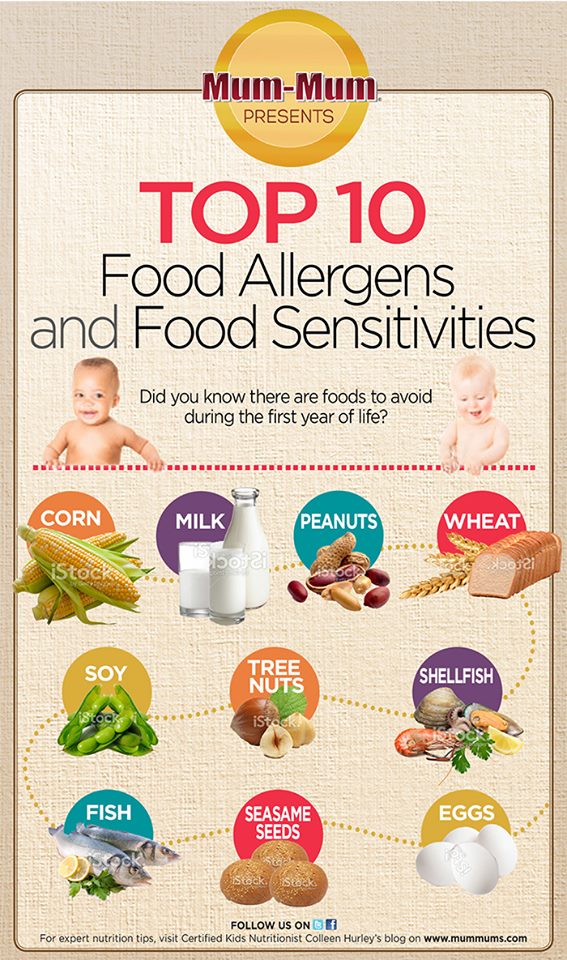
Whole milk
Breastfed baby eats mother's milk, which contains 0.91-1.3 g of protein per 100 ml 7 . Manufacturers adapt dry adapted milk formulas, that is, they make them close to the composition of women's breast milk. Adapted infant formula is a low protein product. For example, MAMAKO 9 infant formulas0007 ® Premium in goat milk are adapted for a protein component that is easy to digest and assimilate. But whole cow's milk, like whole goat's milk, are high-protein foods: cow's milk contains about 3.2 g of protein per 100 ml, in goat - up to 3.6 g per 100 ml.
In addition, regular milk contains nutrients whose amounts are not adapted to the needs of the child. Therefore, it is not worth giving whole milk to children under one year old 8 , and if you want to feed your child with milk porridge, it is better to choose ready-made industrial production. Such porridges, for example, MAMAKO porridges ® with prebiotics in goat milk, designed for comfortable digestion, enriched with vitamins and easy to digest.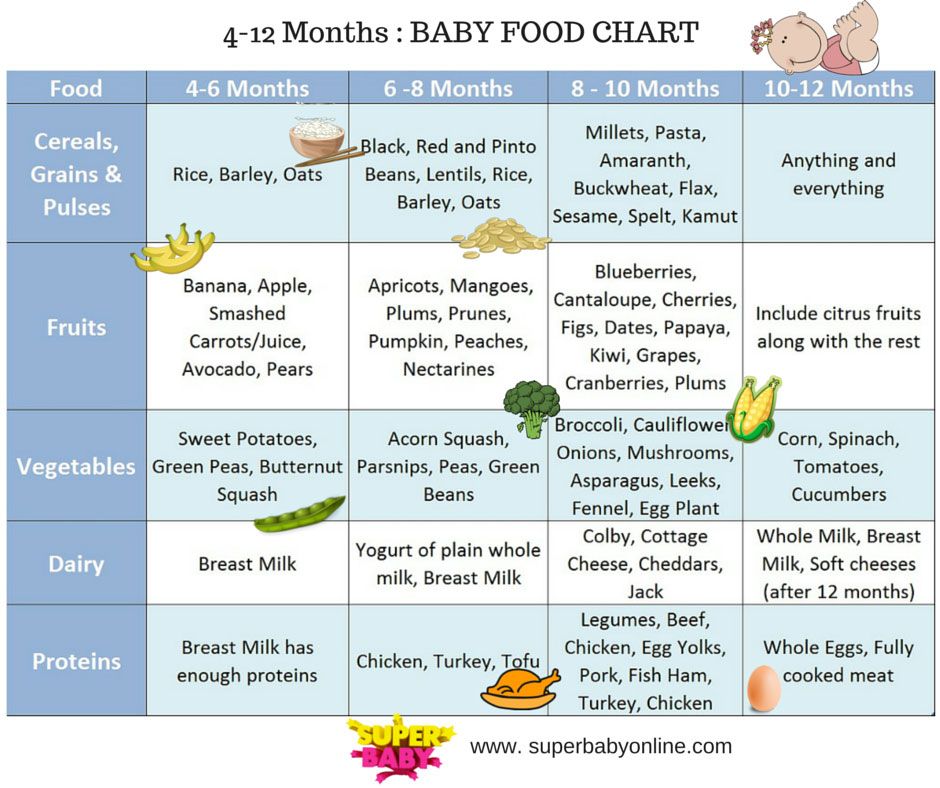
Read also
- milk or formula - which is more useful for children after a year.
Products with gluten
The problem of food allergies in babies today is one of the most acute. Infants are often observed intolerance to wheat germ proteins - gluten . Gluten is found in many cereals, but most of all in wheat, which is used to make semolina, flour and pasta. In the first year of a baby's life, it is important to reduce the risk of developing food allergies, including gluten allergy 9 . Therefore, semolina, pasta, white bread and bakery products made from wheat flour are foods that are best excluded from the diet of children under one year old.
Honey and nuts
Both products are very useful, but nuts, like honey, are highly allergenic food, unsuitable for children of the first year of life.
Carbonated drinks
Carbonated drinks should not be given to children under one year old due to:
- excess sugar: sodas are usually very sweet,
- carbonic acid, which creates "bubbles", that is, makes the drink carbonated.
 It irritates the mucous membrane of the walls of the stomach and causes severe discomfort in babies,
It irritates the mucous membrane of the walls of the stomach and causes severe discomfort in babies, - flavors, colors and preservatives - these may cause an allergic reaction.
Fatty meat
Fatty meats include pork, lamb, goose and duck. It is extremely difficult for the baby's developing digestive system to digest dishes from these types of meat. It is better not to take risks in order to avoid a heavy load on the liver and a breakdown in the digestive tract. Sausages and sausages should also be excluded because of preservatives, flavor enhancers and other artificial additives. nine0005
The habit of healthy and high-quality food - without dyes and preservatives, with a reasonable minimum of sugar and salt - is the basis for the health and successful development of your crumbs. Healthy eating is a serious matter, but there are no special secrets. Parents, armed with knowledge, are always able to provide the baby with a varied and healthy diet for full development.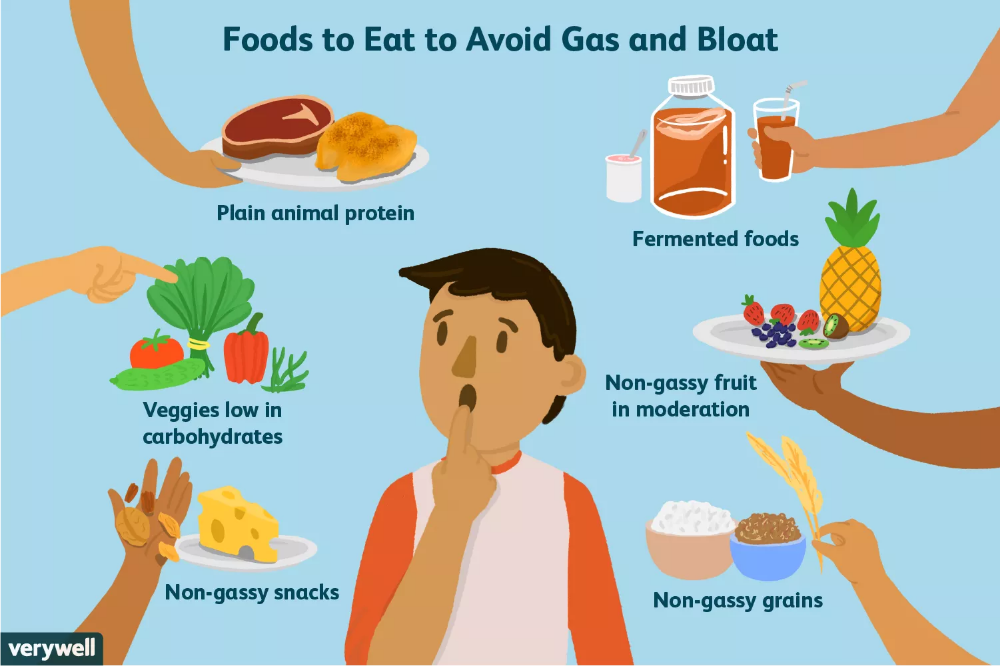
* Breast milk is the best food for babies. WHO recommends exclusive breastfeeding for the first 6 months of a child's life and continued breastfeeding after complementary foods are introduced until the age of 2 years. Before introducing new products into the baby's diet, you should consult with a specialist. The material is for informational purposes and cannot replace the advice of a healthcare professional. For feeding children from birth. The product is certified. nine0156
7 foods that are undesirable for children under one year old
Of course, modern mothers know that sausages should not be given to babies, soda and cream cakes. What else can not eat children under one year old? We made a list of 7 less obvious foods.
1. Salt
Excess salt in the diet is harmful to the baby's kidneys and can lead to swelling and dehydration. Of course, a lack of salt is also not useful, but in real life, with a normal diet, it practically does not occur: salt is contained in sufficient quantities in most foods, and there is no need to add salt on purpose.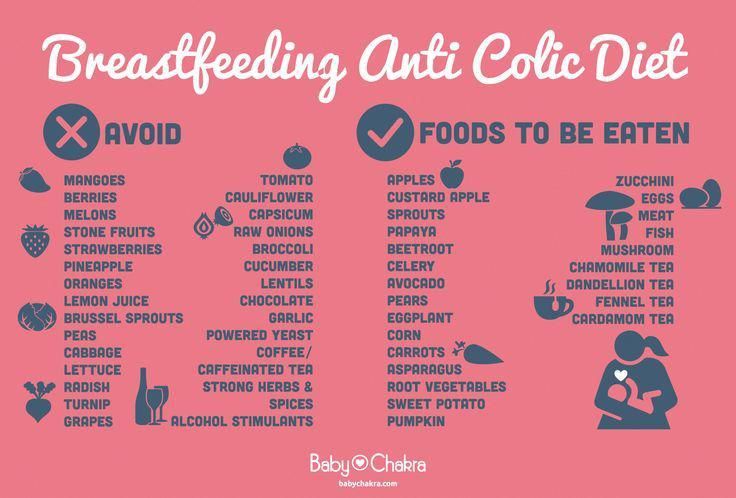 And if for us, adults, baby purees and cereals without salt and sugar seem tasteless and disgusting, don’t worry, for a baby, the situation is completely different. nine0005
And if for us, adults, baby purees and cereals without salt and sugar seem tasteless and disgusting, don’t worry, for a baby, the situation is completely different. nine0005
The taste perception of young children is not yet spoiled by excessively sweet and salty foods, flavorings and flavor enhancers. If your child refuses mashed broccoli, then most likely he just does not like the taste and texture of broccoli, and not at all the lack of salt.
2. Sugar
Everyone knows the dangers of excess sugar - dental problems, obesity, associated cardiovascular diseases and the risk of developing diabetes. However, it can be very difficult to refuse a cookie or candy to a child familiar with the sweet taste, and tears are usually inevitable. What to do? nine0005
The secret is simple - introduce foods with added sugar into your baby's diet as late as possible, at the earliest in the year, although it is better to wait until two years. The National Nutritional Optimization Program for Children aged 1 to 3 years recommends limiting sugar in the diet of babies 1 to 3 years of age to 25-30 grams per day, taking into account the sugar found in special baby foods, juices, yogurts, etc.
3. Honey
It would seem that honey is a wonderful and healthy alternative to sugar, so why is it not recommended for babies under one year old? In fact, the reasons some. First, honey can contain spores bacteria Clostridium botulinum. The immune system of adults and children older people can easily cope with them, but in babies they can cause a deadly disease called infantile botulism. nine0005
Secondly, honey is the strongest allergen, so it is better to postpone acquaintance with it until a later age.
4. Fruit juices and drinks
American Academy of Pediatrics (AAP) released in 2017 New recommendations for adequate intake of fruit juices in infants, young children and adolescents who begin with advice to completely avoid fruit juice for feeding infants life. According to AAP, excessive juice consumption can lead to diarrhea, overeating or, conversely, malnutrition, as well as to occurrence of dental caries*. At the same time, babies can and should be offered Whole fruit, mashed or pureed.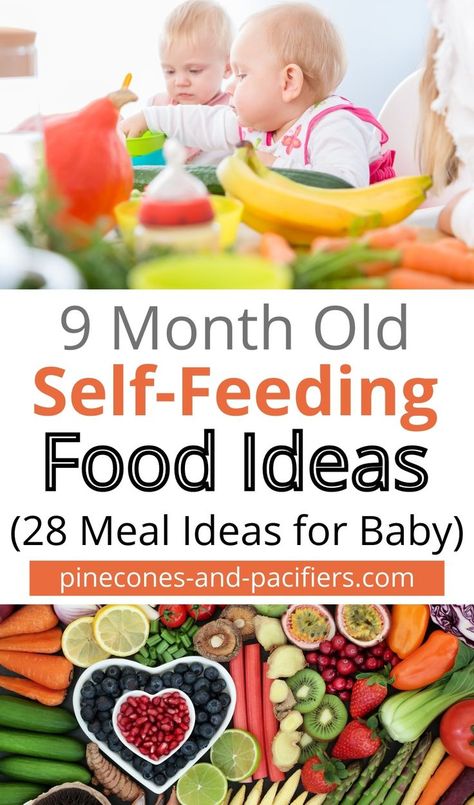 nine0005
nine0005
A various fruit drinks and nectars in addition to natural sugar from fruits often contain added sugar, which makes them perfectly unsuitable for feeding babies up to a year.
Breeding of juices and nectars with water does not completely solve the problem, since it does not reduce dental risks. If your child refuses to drink water, try compotes and fruit or herbal teas.
5. Foods that are easy to choke on
The danger of a product to children is determined by several characteristics: consistency, shape, and size. Most often babies gagging slippery, round, sticky, fibrous and hard products. nine0005
The most dangerous are all round and large enough to block the airways: lozenges, grapes, cherry tomatoes, nuts**. Not far behind in sad dangerous food rating other candies (especially sticky ones), fish bones and meat and, in fact, the meat itself ***.
Remember that theoretically a child can choke on any food, so never leave your baby unsupervised eating.
6. Egg white
Have you ever wondered why in all complementary feeding schemes is it the yolk, not the whole egg? Nothing surprising: egg protein is one of the strongest allergens. Up to a year is better limit the baby to only the yolk, and introduce the protein a little later.
Only make sure the eggs are thoroughly cooked. Raw and half-raw eggs may contain a bacterium that causes salmonellosis, a disease deadly for young children.
7. Cow and goat milk nine0163
Surprised? Whole cow's milk is the main cause of allergies in children under one year old. In addition, it contains a large amount of lactose, milk sugar, which some babies have difficulty digesting due to the fact that their gastrointestinal tract is not yet sufficiently developed. There are studies linking the early introduction of animal milk into the diet as a substitute for mother's milk or infant formula with an increased risk of iron deficiency anemia and type 1 diabetes.